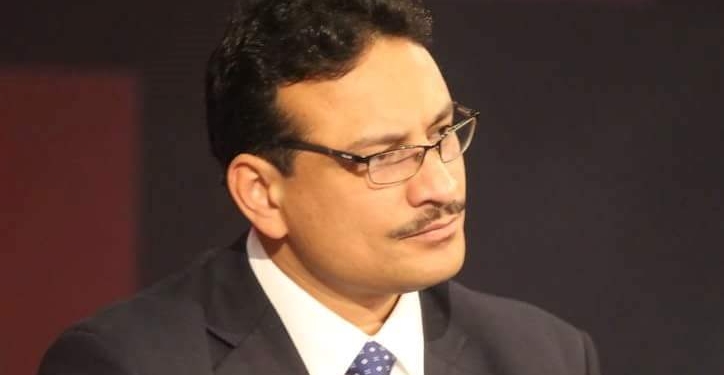William Zartman, the renowned scholar of conflict and peace studies, says that parties to a conflict agree to negotiate when they are faced with a mutually hurting stalemate. The Afghan conflict has apparently reached that stage of stalemate where none of the parties seem to be making advances in regard to deciding the situation in their favor. Therefore, the parties — namely the United States, the Afghan government, and the Taliban have been willing to engage in dialogue to explore a viable solution to the nearly two-decade long conflict. The search for peace and reconciliation gained impetus when Zalmay Khalilzad was appointed as the United States’ special representative for the Afghan peace process in September 2018.
While the Afghan conflict has reached, to use Zartman’s word, “ripeness” and is ready for political dialogue over a settlement, the process has been facing many consistent roadblocks. This has halted the desired progress, causing a lot of anxiety among the stakeholders. The roller-coaster peace process has serious flaws, and without correcting those issues it will be nearly impossible to conclude negotiations successfully.
The major issue with the ongoing process is the lack of coordination, collaboration, and consensus between the United States and the Afghan government, the two strategic partners and common antagonists of the Taliban. Khalilzad, upon his appointment, undertook whirlwind shuttle diplomacy, traveling to all directions of interest vis-à-vis the Afghan conflict while setting an unrealistic timeline for striking a peace deal with the Taliban. In the process, he often ignored the Afghan government, leaving it suspicious of Khalilzad and his efforts. The rumors that generated from the December 2018 Abu Dhabi meeting with the Taliban about the possibility of replacing the elected Afghan government with a caretaker one added to the already sprouting distrust.
Besides the solo efforts of Khalilzad on the Afghan peace process, the scratchy relationship between Afghan President Ashraf Ghani and Khalilzad dating from their undergraduate days in Beirut is also cited as a reason behind the strained relations. The two leaders are reported to lack the chemistry that is sine qua non for any peace process to succeed. Consequently, the two strategic partners fell apart as the peace process progressed. Afghan National Security Adviser Hamdullah Mohib memorably criticized Khalilzad’s conduct, going so far as to saying the US representative was behaving like a viceroy.
On the other hand, Kabul has lacked consistency and strategic vision in the peace process. While a comprehensive road map offered by Ghani in February 2018 during the Kabul conference and a subsequent unilateral ceasefire in June 2018 put the Taliban in a difficult position, the follow up to these initiatives was erratic. After announcing the road map in February, Ghani came up with yet another strategy for peace and reconciliation with the Taliban during the Geneva conference in October, sections of which nullified his February proposal. In the meantime, there has been a lot of rambling and wrangling around establishment of the negotiation team representing the Afghan government, another testimony of the lack of homework on the part of the presidential palace.
In addition, Ghani shifted his focus to the 2019 presidential election and his bid for another term in office. In the process, he lost his close aides and colleagues, leaving him with little human capital to rely upon to pursue his peace agenda. Furthermore, the election agenda upended whatever political consensus was accumulated during 2017 and 2018. The participation of Afghan political leaders in a Moscow meeting with the Taliban even after presidential palace urged restraint was a clear example of discord among the political leadership and government. Add that to the fallout with the US special representative and it’s no wonder the vision of peace and reconciliation has been tainted.
The Taliban, on the other hand, continue to push for the winner-takes-all approach. The Taliban have been ignoring the Afghan government throughout the process, hoping to reach a conclusion with the Americans. The most critical part of their approach has been the effort to belittle the Afghan government by shrugging off Kabul as rudimentary entity in the complex Afghan peace and reconciliation process. This compulsion of the Taliban can be understood in the light of the fact that they need to maintain the intensity of their battlefield efforts, for which there is a need to present the Afghan state apparatus as enemy. Even then, a toned-down approach will help the whole process. Considering the fact that without engagement by the Afghan government it will be exceedingly difficult for the United States and the Taliban to reach a comprehensive peace deal, the Taliban have to reconsider their approach toward the sitting Afghan government.
The solution to the Afghan peace process conundrum is that all parties will have to try and reconcile their positions, connect the dots, and eliminate the missing links. The parties will have to recognize the basic fact that peace is all about compromise and not triumph. Unless and until all come to terms with this basic understanding and adjust their agendas, it is almost impossible to reach a peaceful settlement.
The Americans, and more importantly Khalilzad, will have to walk shoulder-to-shoulder with the Afghan government in the push for peace with the Taliban. A solo flight will not only challenge the progress of the peace process but pose perils to the strategic partnership between the two countries. Therefore, as true strategic partners, Khalilzad will have to find a way of working in tandem with Ghani and his team.
On the other hand, Ghani and his team must change their attitude toward peace and reconciliation with the Taliban. In this regard, the office of the President of Afghanistan will have to reach out to all political figures and develop a consensus with them. Consensus with the political leadership and their broader engagement in the peace process will give the president much-needed clout to take the driver’s seat in the peace process.
And finally, the Taliban must recognize that without engaging with Kabul, any peace agreement will be incomplete and feeble. A vision for winning over any of the parties will certainly pose challenges to the Afghan peace and reconciliation process. Continuous effort toward undermining the Afghan government will do no favor to anyone but can certainly put the peace process on the path to failure, which will serve none of the conflict parties.
Although the peace process gained momentum after Khalilzad’s appointment in September 2018, it has already faced major setbacks. Still, there is reason for hope as there is still life in the process after the resumption of the talks by the Trump administration in the aftermath of an abrupt cancellation in September 2019. Nonetheless, corrective measures will have to be taken, and missing links will have to be connected by all parties, in order to ensure progress toward a durable solution to the Afghan conflict.













